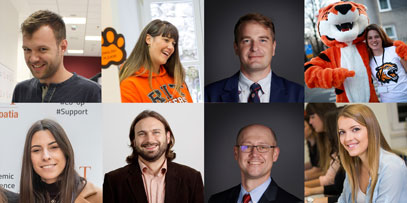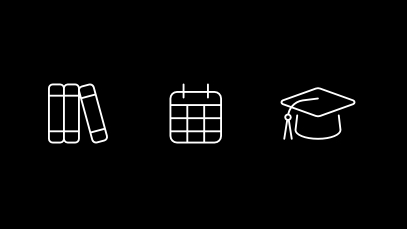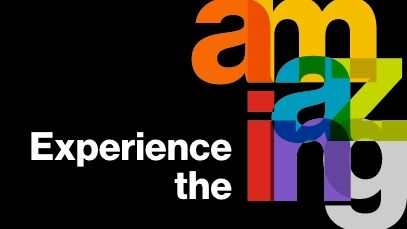Our alumna Pamina Benčić, mentored by Dr. Francis Brassard, won the international cultural-tourism award “Plautilla” at the 6th International Historic Cities Congress in Solin
Our alumna Pamina Benčić, mentored by Dr. Francis Brassard, won the international cultural-tourism award "Plautilla" at the 6th International Historic Cities Congress in Solin
December 2, 2020
It is with great pride that we announce another valuable success of one of our alumni, and this time we talk about Pamina Benčić (Hospitality and Tourism Management program, graduated in 2020) and her success at the 6th International Historic Cities Congress, organized by Tourist Board of the city of Solin from November 23-27, 2020. The topic of the congress was preservation and interpretation of historic attractions and localities in historic cities throughout Croatia through benchmarking with cities from abroad. Historic periods covered throughout this congress ranged from prehistoric times to roman times and middle ages.
Pamina Benčić, mentored by our Faculty member Dr. Francis Brassard, submitted a paper at this congress on the topic of "Improving Cultural Heritage Offer Through Game Design: A Proposal for Dubrovnik" and she triumphed at the international cultural-tourism award "Plautilla" by getting the first prize - a Gold Plaque and a financial award of HRK 5,000!
The "Plautilla" award is given for the quality and innovation in historical cities management in the field of interpretation and protection of cultural heritage, and the promotion and distribution of cultural tourism products.
We asked Pamina Benčić and Dr. Brassard to tell us more about this achievement.
Q: How did you come up with the idea of taking part in the conference?
Dr. Francis Brassard: "This organizer of the conference, Ms. Jelena Stupalo, Director of the Tourist Board of the city of Solin, gave a presentation in my Cultural Heritage class in the Spring semester of 2019/2020 academic year. She also advertised the congress that was to be held in May. However, due to COVID-19, it was postponed for November this academic year. Part of the plan of this congress was to invite students from various universities to submit a paper (co-authored or mentored by a faculty) to the congress and present it.
Q: How did you come up with the topic and what was your research path like?
Pamina Benčić: "The overall theme of the conference was about "the valorization of cultural heritage", i.e. about exploring and trying to come up with new and innovative ways of presenting cultural heritage. I got the idea for the topic "Improving Cultural Heritage Offer Through Game Design: A Proposal for Dubrovnik" thanks to my passion for playing escape rooms and doing scavenger hunts, and when I was younger, reading Dan Brown books and watching Lara Croft movies. I was also working as a game master for Dubrovnik Escape Room one summer as a part of my summer co-op and I realized that through playing games, people appreciate/enjoy learning a lot more than in situations where the material is simply given to them to be absorbed passively. Then I remembered what we were taught in our lectures at RIT Croatia about the most recent consumer demand for transformational and authentic experiences and the problem of having a standardized and outdated offer. People of today want to be inspired; they want to learn and to be transformed by an experience. So, I figured that incorporating game design into Dubrovnik's existing cultural heritage offer could potentially be a really cool and fun way of responding to the newest demand".
Q: Did COVID-19 impact this process in any way and if so, how did you overcome the obstacles?
Dr. Francis Brassard: "The COVID situation only impacted on the schedule of the conference and the fact that Pamina was not giving the opportunity to present in person. (I knew that Pamina's presentation skills are one of her strong points as well as RIT's teaching curriculum, so that I was very confident that she had a good chance to win a prize. She also decided to present in English, something that, I believed, would have increased her chances even more. Anyway, she got the first prize without the opportunity to show her talent and what she has learned at RIT, with regard to presentation skills, I mean) However, there is something worth mentioning regarding the process. Because of the COVID, I had to adjust my class to an online format. In my case, I decided to have students read and comment on specific articles. I believe that Pamina got important information from those articles in support of her ideas".
Q: From a mentor's point of view, how was it to work with Pamina?
Dr. Francis Brassard: "Pamina was very enthusiastic about the project. She wrote all of her essay by herself. She was very quick in integrating the suggestions. It was a pleasure mentoring her. Let me share some trivia about how it all started though: the project started in Rochester (I was there when Domagoj Nikolić, our Faculty member, contacted me regarding Jelena Stupalo's interest in coming to our campus), was developed in Dubrovnik (Jelena's presentation, initial meeting with Pamina), continued in a café (proofreading of Pamina's essay) in Zagreb and finished online (Pamina's presentation). It also involved some input from an IT specialist in Japan regarding the correct use of certain terminology. So all in all, quite an interesting life path for a project J"
Q: From a mentee's point of view, how was it to be mentored by Dr. Brassard and what were the most valuable learning outcomes from doing this project?
Pamina Benčić: "I loved working with Dr. Brassard. He is extremely kind, patient and helpful. He was always asking the right questions, inspiring me to think critically, pushing me in the right direction but he was never interfering with my creative process and I appreciate that. He let me do almost everything on my own so this whole experience of writing and presenting my paper at the conference for the first time made me feel like an adult who is about to remove her training wheels from a bicycle and ride off. I realized that these kinds of "first times", even though they might seem a bit scary, are needed in order for one to progress and develop as a person".
Q: For the end - what would be your message to all students about taking opportunities like this one and making the most out of it?
Pamina Benčić: "My advice would be to keep your eyes open for new opportunities, dare to welcome those opportunities when they arise but choose your battles carefully - you cannot be in 10 different places at once and if you spread yourself too thin, the quality of your work could suffer. Choose to focus your energy on things you enjoy and love doing because that's the only way to consistently do them with passion and determination - which will show in the final result in the end".
Recommended News
-
November 15, 2024
-
November 5, 2024
-
October 31, 2024
-
October 30, 2024











